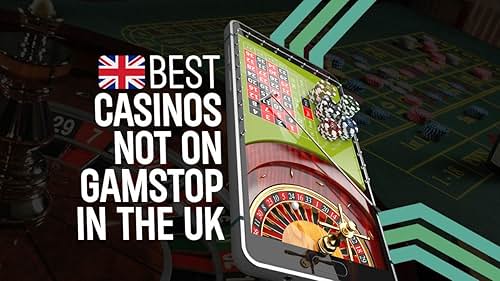With the growing popularity of online gambling, many players are seeking alternatives outside the UK’s strict self-exclusion scheme, GamStop. While UK casinos not on GamStop offer more freedom and fewer restrictions, they also require players to exercise greater caution. Not all non-GamStop platforms are created equal, and distinguishing the legitimate from the questionable is essential for a safe and enjoyable experience. Here are the top tips to help you spot trustworthy casinos that aren’t registered with GamStop.
1. Check for a Reputable Offshore License
Legit UK casinos not on GamStop often operate under offshore licenses from jurisdictions like Malta, Curacao, or Gibraltar. These regulatory bodies enforce standards for player protection, fair play, and financial transparency. A valid license from a respected authority should be clearly displayed on the casino’s website—typically in the footer. If licensing information is missing or seems fake, it’s best to avoid that platform.
2. Assess Website Quality and Transparency
A reliable casino will invest in a professional-looking website with clear navigation, proper spelling and grammar, and functional customer support channels. Key information such as terms and conditions, privacy policies, and responsible gaming options should be easy to access. If the site appears poorly maintained, lacks basic details, or seems designed to confuse, it’s a major red flag.
3. Read Independent Player Reviews
Although direct site searches are not required, you can benefit from online forums or gambling communities where players share their experiences. Look for consistent patterns in reviews—particularly concerning payment issues, bonus terms, or customer service. While every casino might have a few complaints, a high volume of unresolved issues could signal trouble.
4. Test Customer Support Responsiveness
Legit UK casinos not on GamStop typically offer responsive and helpful customer service through live chat, email, or phone. Before making a deposit, reach out to their support team with a question or concern. Their response time, professionalism, and knowledge can give you a good indication of the platform’s reliability.
5. Evaluate Payment Methods and Withdrawal Policies
Trustworthy casinos will offer secure, popular payment methods such as credit cards, e-wallets, or even cryptocurrency. Check the withdrawal times, fees, and limits to ensure they align with industry norms. Be cautious if a casino requires you to wager excessive amounts before cashing out or hides key financial terms in the fine print.
6. Review Bonus Terms Carefully
Bonuses can be enticing, but they should come with reasonable terms and conditions. Reputable UK casinos not on GamStop provide transparent wagering requirements and clearly explain how to claim and use bonuses. Be wary of platforms offering unusually large bonuses with hidden or unfair rules, as this is a common trap used by rogue sites.
7. Check for Game Fairness and Software Providers
Established software developers like NetEnt, Microgaming, or Playtech only work with reputable casinos. A strong lineup of well-known games from trusted providers ensures both entertainment and fairness. Legit platforms will also often have their games tested for randomness by third-party auditors like iTech Labs or eCOGRA.
8. Verify Responsible Gaming Tools
Although not on GamStop, ethical casinos still provide responsible gaming features such as deposit limits, cool-off periods, or self-exclusion options. This shows a commitment to player welfare. If a site promotes aggressive gambling or lacks any responsible gambling features, it may not be operating with your best interest in mind.
Final Thoughts
Exploring UK casinos not on GamStop can open doors to a broader range of gaming experiences and more flexible play. However, with that freedom comes the responsibility to choose wisely. By checking licensing, reviewing terms, and evaluating customer service, players can confidently find platforms that are both safe and enjoyable. When in doubt, always trust your instincts—if something feels off, it probably is.






